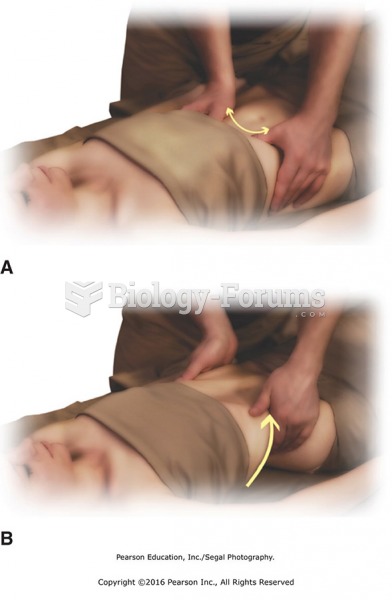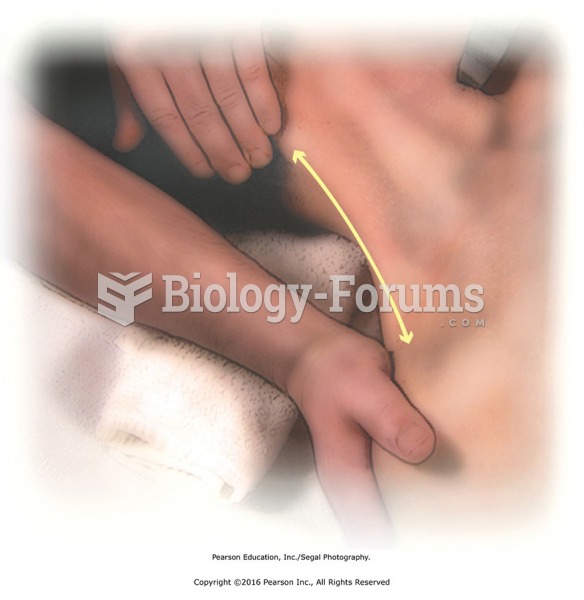|
|
|
Most strokes are caused when blood clots move to a blood vessel in the brain and block blood flow to that area. Thrombolytic therapy can be used to dissolve the clot quickly. If given within 3 hours of the first stroke symptoms, this therapy can help limit stroke damage and disability.
The Centers for Disease Control and Prevention has released reports detailing the deaths of infants (younger than 1 year of age) who died after being given cold and cough medications. This underscores the importance of educating parents that children younger than 2 years of age should never be given over-the-counter cold and cough medications without consulting their physicians.
People who have myopia, or nearsightedness, are not able to see objects at a distance but only up close. It occurs when the cornea is either curved too steeply, the eye is too long, or both. This condition is progressive and worsens with time. More than 100 million people in the United States are nearsighted, but only 20% of those are born with the condition. Diet, eye exercise, drug therapy, and corrective lenses can all help manage nearsightedness.
Allergies play a major part in the health of children. The most prevalent childhood allergies are milk, egg, soy, wheat, peanuts, tree nuts, and seafood.
In 2010, opiate painkllers, such as morphine, OxyContin®, and Vicodin®, were tied to almost 60% of drug overdose deaths.
 Apply deep circular effleurage to the buttocks muscles as a warming technique. Place one hand on top ...
Apply deep circular effleurage to the buttocks muscles as a warming technique. Place one hand on top ...
 (A) Thumb slide along diaphragm, and lift around the waist. Place thumbs just under the rib cage, ...
(A) Thumb slide along diaphragm, and lift around the waist. Place thumbs just under the rib cage, ...
 Stretch neck in lateral flexion. Place one hand on the head and the other hand on the shoulder and ...
Stretch neck in lateral flexion. Place one hand on the head and the other hand on the shoulder and ...




